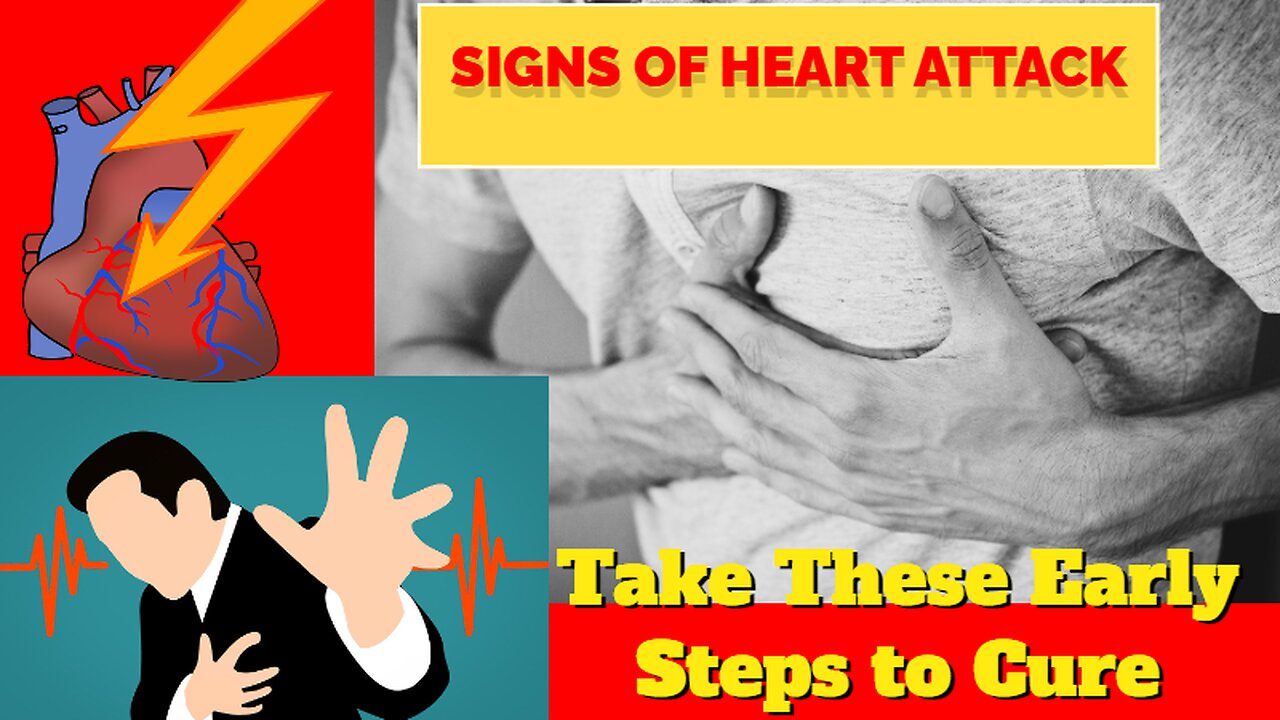Premium Only Content

Decode the Signs Heart Attack Alert
Recognizing the signs of a heart attack is crucial for seeking immediate medical attention, as early intervention can save lives. Here are the typical warning signs of a heart attack:
Chest Pain or Discomfort: This is often described as a feeling of pressure, tightness, fullness, or pain in the chest. It can last for several minutes or come and go.
Pain in Other Areas of the Upper Body: Pain or discomfort may radiate to the arms (usually the left arm but can affect both), the neck, jaw, shoulder blades, or back.
Shortness of Breath: You may experience difficulty breathing, often accompanied by chest discomfort.
Cold Sweats: Profuse sweating, especially if it's sudden and accompanied by other symptoms, can be a sign of a heart attack.
Nausea or Vomiting: Some people may feel nauseated or vomit during a heart attack.
Light-headedness or Dizziness: Feeling faint, light-headed, or dizzy can be an indication of reduced blood flow to the brain due to a heart problem.
Fatigue: Unusual and extreme tiredness, without an obvious cause, can sometimes precede or accompany a heart attack.
It's essential to note that not everyone experiences all of these symptoms, and they can vary in intensity. Some people may have mild discomfort, while others may have severe pain. In some cases, individuals, especially women, may have atypical symptoms such as abdominal pain, indigestion, or unexplained fatigue.
If you or someone around you experiences these symptoms, especially if they are severe, it's crucial to take immediate action:
Call 911 or Your Local Emergency Number: Don't hesitate to seek professional medical help. Emergency medical services can provide life-saving treatment on the way to the hospital.
Chew Aspirin: If you have aspirin available and are not allergic to it, chewing and swallowing an aspirin (typically 325 mg) can help by reducing the clotting that may be causing the heart attack.
Rest Comfortably: Try to stay calm and sit or lie down while waiting for emergency responders.
Early intervention is key in treating a heart attack, so never ignore the signs or delay seeking medical help. It's always better to be safe and have a healthcare professional evaluate the situation, even if you're not entirely sure it's a heart attack.
-
 1:27:57
1:27:57
The Officer Tatum
2 hours agoLIVE: Pete Hegseth DESTROYS Leftist at Confirmation Hearing! + MORE Officer Tatum Show EP 41
27.2K19 -
 1:58:28
1:58:28
The Charlie Kirk Show
3 hours agoThe Hegseth Confirmation Hearing | Larsen, Dr. Marshall, Halperin | 1.14.2025
125K76 -
 12:15
12:15
Reforge Gaming
4 hours agoPlayStation has a First Party Problem
20.8K2 -
 7:12
7:12
Rethinking the Dollar
4 hours agoIs the Catalyst For the Next Financial Crisis...Homeowners Insurance?
5.44K3 -
 2:02:13
2:02:13
LFA TV
20 hours agoHEGSETH HEARING LIVE! | LIVE FROM AMERICA 1.14.25 11am
82.5K31 -
 46:04
46:04
Grant Stinchfield
3 hours ago $4.15 earnedDevious Jack Smith Vindicates President Trump with One Line the Media Won't Repeat
25.7K5 -
 18:12
18:12
ROSE UNPLUGGED
1 day agoTom Homan: They Can't Cancel Me- I'm Not Going Away
12.4K -
 1:02:03
1:02:03
TheAlecLaceShow
4 hours agoNavy SEALs March on Washington for Pete Hegseth | The Alec Lace Show
17.2K8 -
 1:16:46
1:16:46
Bare Knuckle Fighting Championship
1 day agoThe Bare Knuckle Show with Brian Soscia
21K -
 58:42
58:42
The Dan Bongino Show
7 hours agoWill Trump's Inauguration Be Safe? (Ep. 2400) - 01/14/2025
645K1.43K